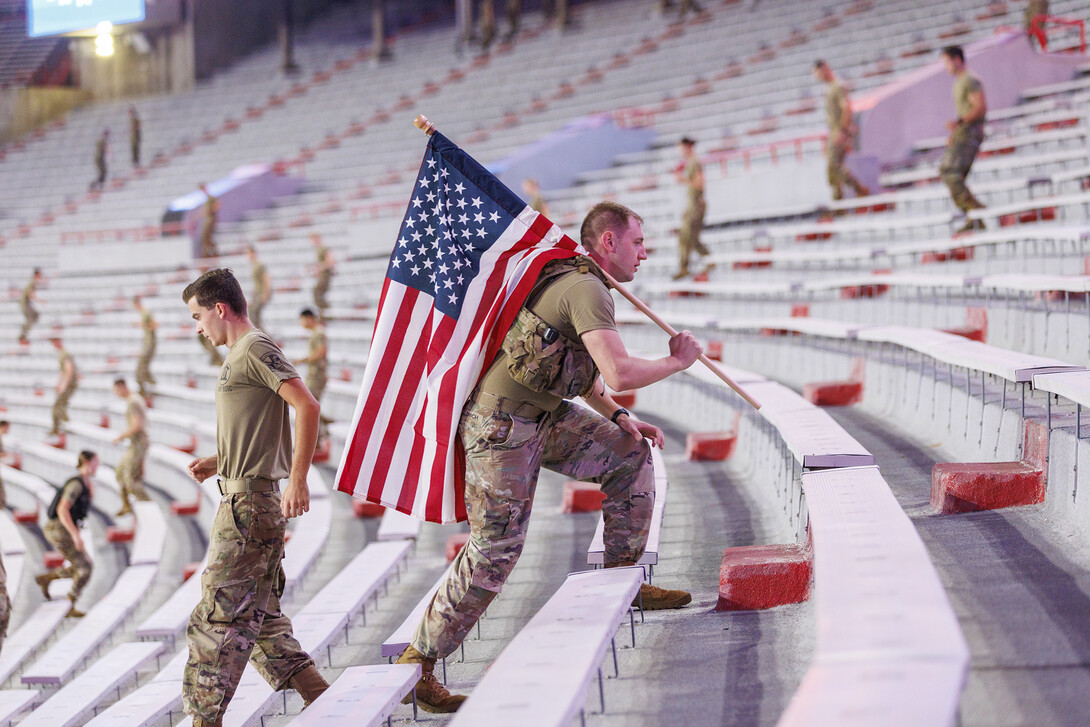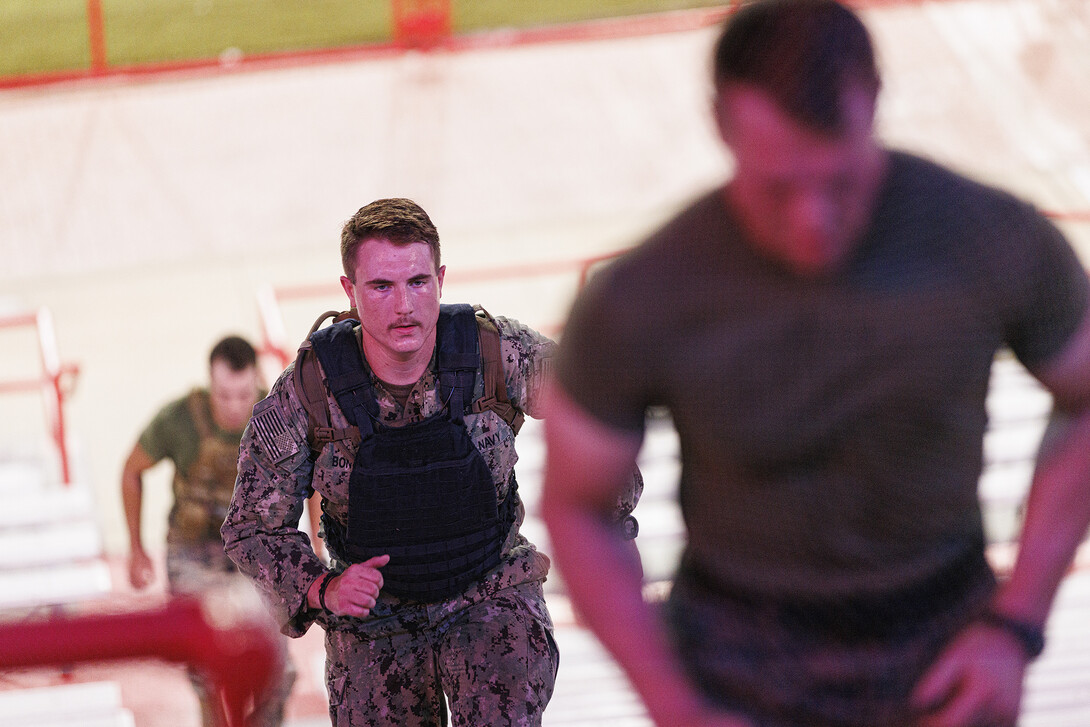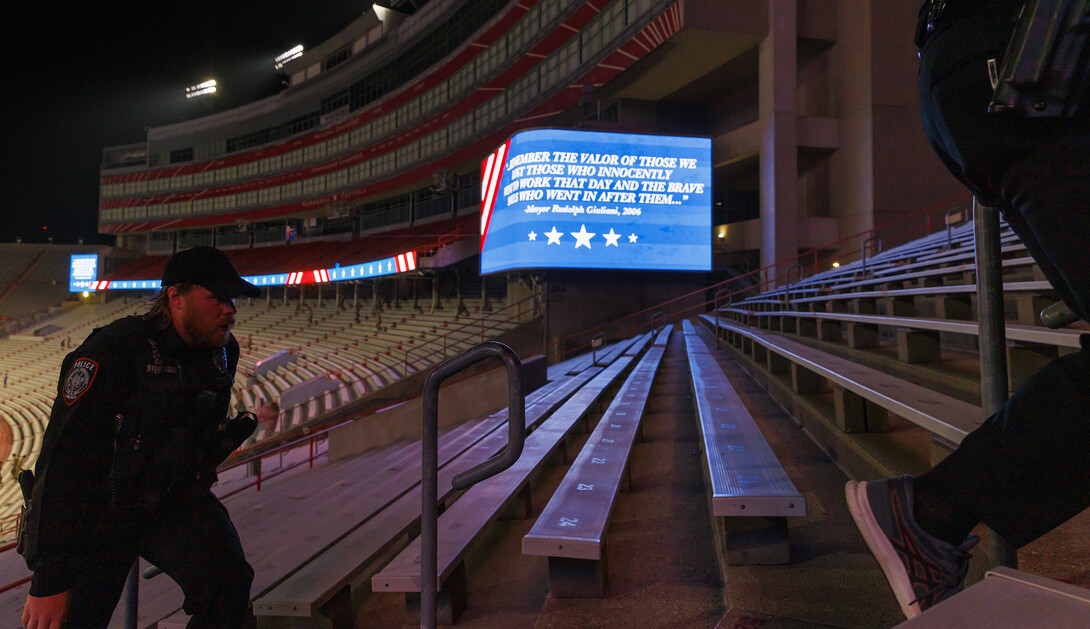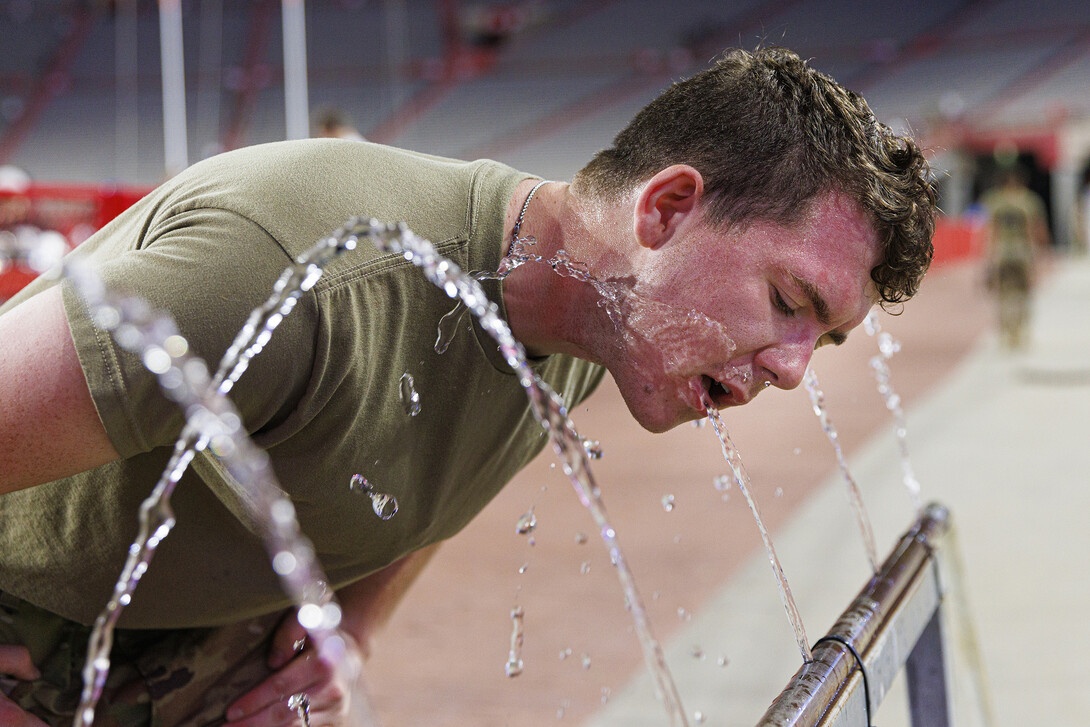
They climbed, silently, in remembrance and reflection.
More than 160 volunteers — a mix of ROTC cadets, midshipmen, active military and reserves, university and city police, and area firefighters — ascending 2,200 stairs inside the University of Nebraska–Lincoln’s Memorial Stadium in the early morning of Sept. 8. The climb a symbolic observance of what first responders faced as they rushed into New York City’s World Trade Center towers on Sept. 11, 2001.
Nearly 21 years since the attacks, the majority of current college coeds were too young (or not yet born) to form memories of the terrible day. Yet, their lives remain impacted.
Nebraska’s Amy Hughes, who was less than a year old at the time of the attacks, was among those who honored the sacrifice of 403 New York first responders. As she climbed the stairs, she thought of those impacted by the attacks — which included her own family.
“9/11 was a big part of why my dad joined the Army,” said Hughes, a senior psychology major, and battalion commander for the Army ROTC program. “It started that legacy in my family of my dad, and now me.”

When finished climbing the equivalent of the Twin Towers’ 110-story stairwell, Hughes (and others) were winded and awash in sweat.
“I don’t know how they did it,” Hughes said of the first responders. “You feel it almost right away and it’s very humbling. It definitely makes you feel very grateful for the first responders.”
Roman Montes was 6 months old when the attacks happened, and his family was living in Washington, D.C., where the Pentagon was attacked. Despite not remembering 9/11 personally, it cast a long shadow on his family, sending his dad on two deployments to Iraq and two to Afghanistan with the U.S. Army.
“My brothers and I kind of grew up with only one parent most of the time,” said Montes, battalion commander for the Naval ROTC.
Climbing the stairs, Montes, a senior majoring in business management, said he powered through to honor the first responders.
“The firefighters on that day didn’t get to take a break,” he said. “So no matter how tired I was, I was going to keep moving and I tried to pass that on to my guys.”

Before they began their ascent, Capt. Troy Scharfen, U.S. Marine Corps instructor, reminded the cadets of why they were in an empty Memorial Stadium early in the morning.
“Your individual efforts not only remember the sacrifice of the firefighters, but symbolically complete their heroic journey to save others,” he said. “Through your participation, we can ensure that the world knows we will never forget.”
The exercise was silent, save for the sound of footsteps on concrete. It made Ethan Forcade, the physical fitness officer for the Air Force ROTC, think of unity.
“It gives me chills to think about it,” Forcade, a junior business management major, said. “It was a day that we all came together around one common enemy. Something terrible happened, and I don’t think we’ve been that unified since, so that feeling of all of us coming together and working together here with that sense of unity was inspiring.
“I felt it in the air and it kept me going.”

Forcade addressed the cadets following the workout, and touched on unity again.
“By lifting ourselves, step by step, up 110 flights of stairs, we were able to experience a small part of what it felt like to be one of the first responders climbing in hundred-degree darkness, not knowing if they would ever see their families again. Most of them did not.
“We as a nation bonded together, unified as one, in the face of evil and immense adversity that descended on our great nation that day… it is that sense of community that sense of us all working as one, that sets us apart from any other kind of organization on this planet.”







